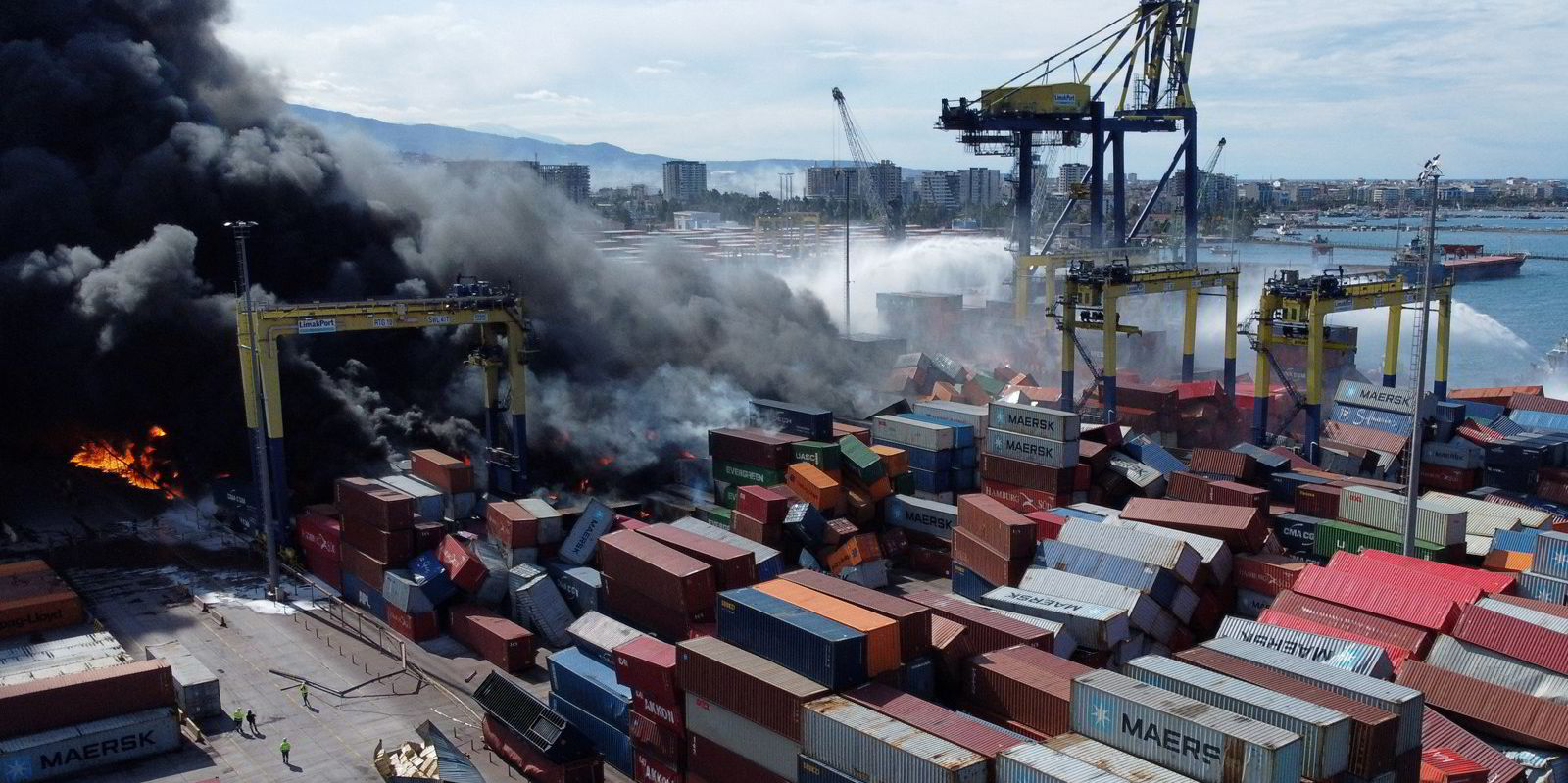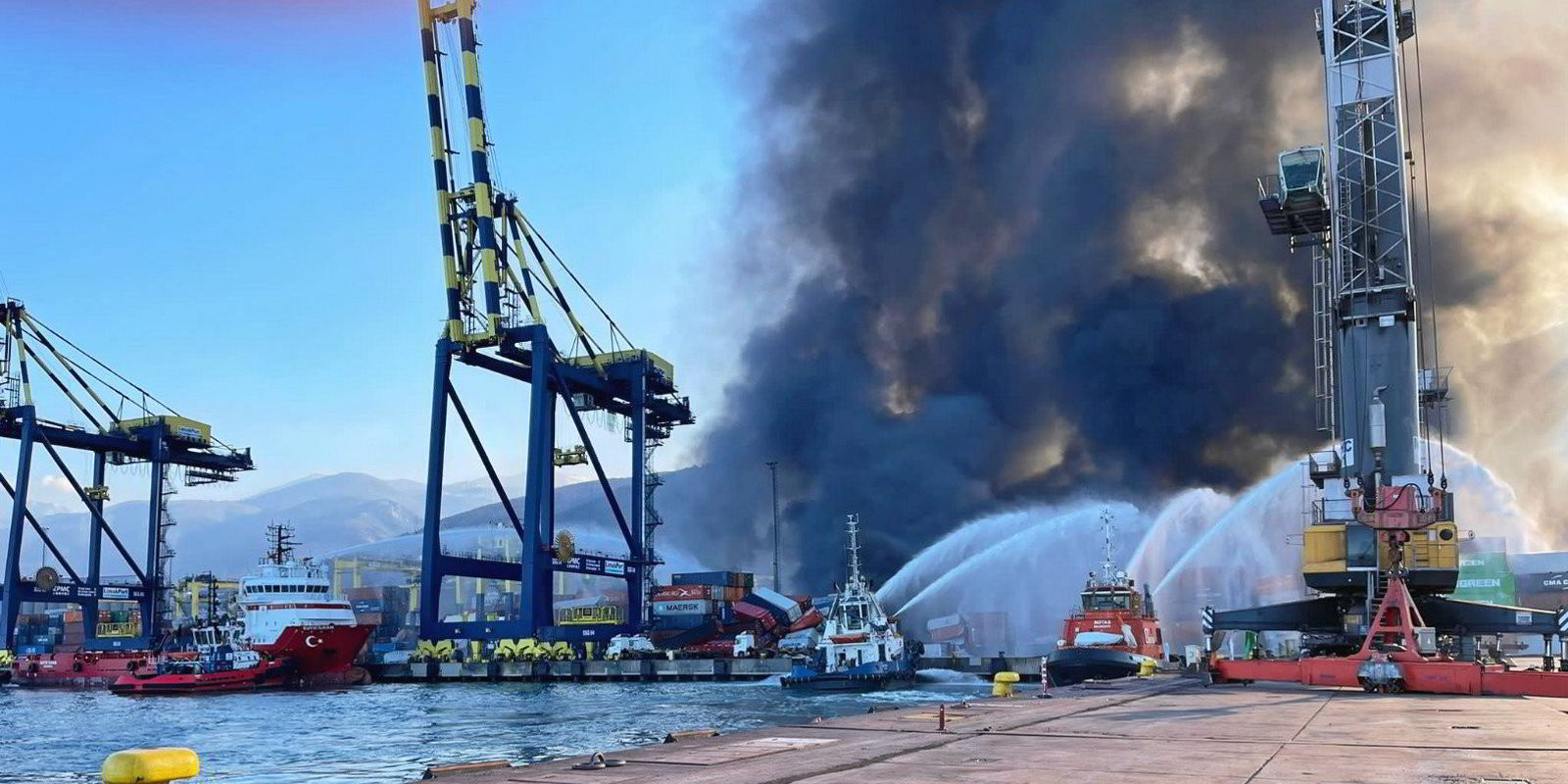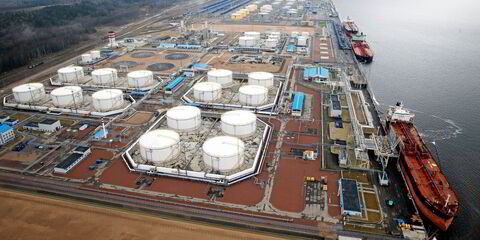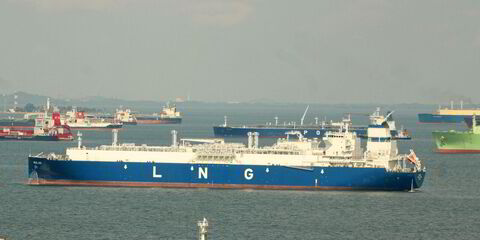Turkish authorities have managed to extinguish a large fire that broke out in the container port of Iskenderun, five days after a devastating earthquake put it out of service.
Video footage released on Twitter by the general directorate of shipping at Turkey’s transport ministry offer apocalyptic images, with heaps of charred boxes and ship hulls lying scattered around in what used to be one of the biggest container ports in the Mediterranean.
“More than a thousand containers are being removed one by one,” the general directorate said.
The agency added that works to put the port back in action “will begin quickly”.
However, given the structural damage it suffered, it remains doubtful if Iskenderun — a terminal operated by the Limak Group — will be back in business any time soon.
After a wave of earthquakes hitting south-east Turkey and northern Syria on the night to 6 February, Turkish authorities announced that just the port of Iskenderun was out of action but other terminals in the area remained open.
“The Iskenderun Regional Port Authority routinely serves and maritime activities have begun,” Turkey’s transport ministry reiterated on Friday.
GAC Hot Port News, however, reported later in the day that operations have been suspended as well until further notice at the port of Isdemir, where damage has been reported on the quay.
More importantly, GAC Hot Port News also reported disruptions at the Ceyhan end of the Baku-Tbilisi-Ceyhan (BTC) oil pipeline, as well as at the Dortyol Botas LNG Terminal — where the 170,000-cbm Ertugrul Gazi (built 2021) floating storage and regasification (FSRU) unit is berthed.
Oil exports from Ceyhan were thought to have resumed on 8 February, after a precautionary shutdown to carry out checks at the pipeline showed it suffered no damage.
Reuters, however, reported on 10 February that the oil flow had stopped due to ongoing damage assessment at the Ceyhan oil terminal itself.
Exports from the BTC pipeline, that carries Azeri crude, could resume on 12 February “unless problems are found”, Reuters said, citing official and industry sources.
In a further side effect, Kazakhstan also postponed plans to start exporting oil from the Tengiz oilfield through the BTC this month.
Trade diversion
Container liner operators have already begun diverting services away from the terminal.
However, it is not business as usual in the area and it likely will not be for quite some time, a major P&I club warns.
“Regional disruptions to normal port operations will last for many months,” Dean Crossley, loss-prevention manager at the West of England P&I Club, wrote in a note on 9 February.
Even ports operating normally will likely face shortages in workforce and equipment as the government focuses all resources on rescue and recovery operations in the areas hit by the quake, which killed at least 20,000 people, according to latest numbers — most of them in Turkey.
“Priority will be given to inbound traffic, with humanitarian aid and supplies for the emergency and rebuilding of local infrastructure,” Crossley wrote.
This was confirmed on 10 February, when the Port Operators Association of Turkey (TURKLIM) issued a statement, according to which all ports with suitable roll-on, roll-off platforms in the area would serve humanitarian cargo “without interruption [and] with all their facilities and capabilities”.
Diversion of regular trade to other ports is also likely to lead to delays.
“Ports within other unaffected parts of the country may become busier than average,” Crossley said.
One positive aspect is that ship handling capacity in Turkey has skyrocketed in the last 20 years, following a building boom for ports.
According to TURKLIM, the Gulf of Iskenderun in particular has been the biggest single recipient of such investments.




